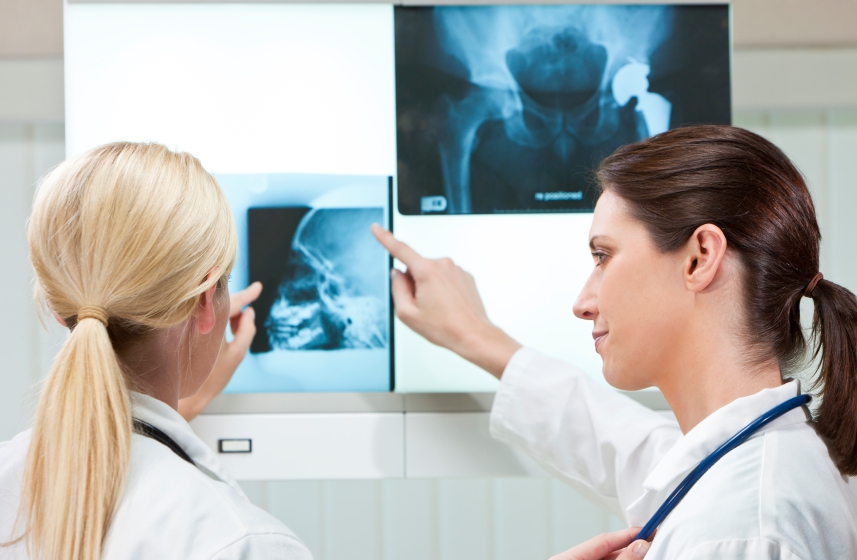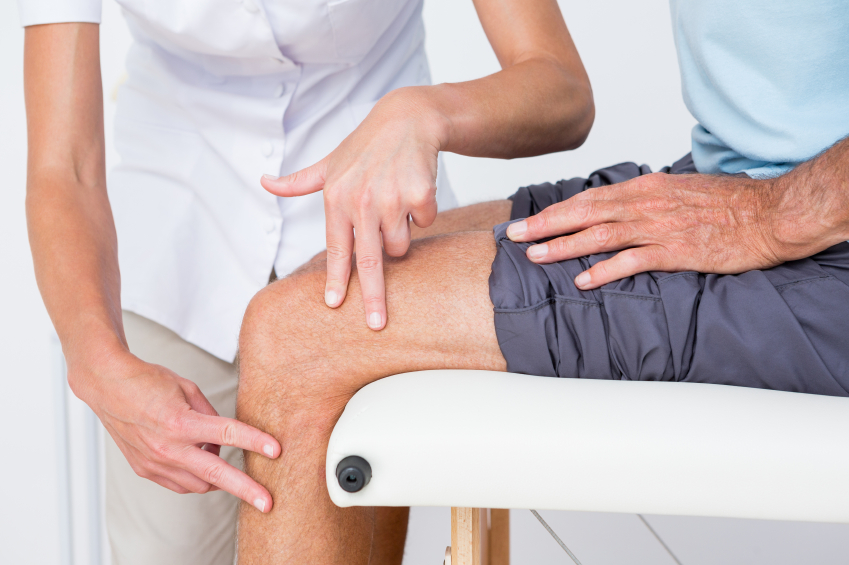We have mentioned other injuries that can damage your hips, touching briefly on osteoarthritis. We will give you a more thorough overview of this illness, explaining how to detect it and treat it. The hip joint can be affected by several types of arthritis, but the most common one is Osteoarthritis. It’s also known as a degenerative disease, as the cartilage gets worn with time, leaving raw bone exposed. This is a chronic disease that develops over time, and although it’s not curable it can be treated. When the condition is mild, the main focus is on relieving pain by weight loss, analgesia, physiotherapy, modfication of activity and walking aids. However, if these treatments don’t always work, a hip replacement surgery is needed to help with pain and mobility.
Symptoms
The main symptom of osteoarthritis is pain, followed by joint stiffness. This pain presents commonly in the groin and thigh but may present in the buttock and knee. Pain may worsen with walking and running. These symptoms might start very mild, going away when resting after a strenuous activity but they will eventually worsen as the condition progresses. When it becomes severe, it will only respond to surgery. This illness has great impact in day-to-day life, preventing normal functions like walking, sitting and rising, and climbing stairs. Pain might become chronic and affect mobility and the capacity to work.
What Causes Osteoarthritis?
This illness affects both men and women equally, and it’s detectable by taking x-rays of the hips. There are some factors that will induce or worsen the condition:
● Obesity. Although more probable of affecting your knees and causing arthritis there, obesity can also affect your hips and wear them out.
● Genetics. You might be predisposed to having osteoarthritis if several members in your family suffer from the illness.
● Trauma. A dislocation of the ball from the hip socket or major trauma of the lower limb or bones around the pelvis will cause arthritis that needs to be treated in the same way as ageing osteoarthritis.
● Necrosis. Extreme alcohol intake or even some medications can affect blood clotting and cause necrosis in the hip, leading to osteoarthritis is left untreated.
Treatment
Depending on how advanced the condition is, treatment can be medication to alleviate the symptoms or hip replacement surgery. You can take steps to prevent osteoarthritis by managing your weight, but if you are predisposed to the condition, it might show up just the same.
Hip replacement surgery from our surgeon is minimally invasive, and the prosthesis is inserted through a small incision of less than four inches, or 10cms. There is minimal blood loss and scarring. And the recovery is faster. However, we know that each patient is a different case, which is why our specialist doctor will meet with you for thorough consultations. Hip replacement surgery can make a big difference in your life and improve your quality of life for years to come.
If you want to book an appointment with our expert, or if you want more information about hip replacement surgery, you can contact us on 07943 947 639. Alternatively, you can follow us on Facebook and Twitter to see all of our news and updates.




